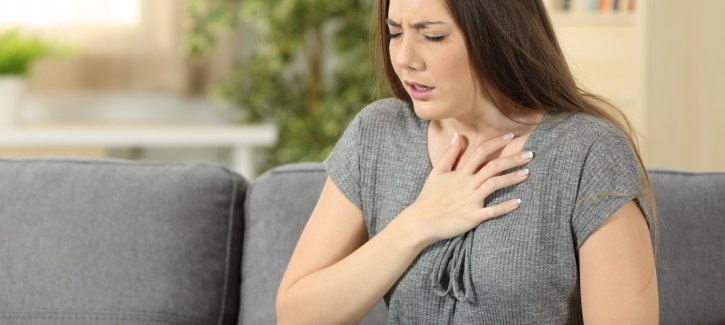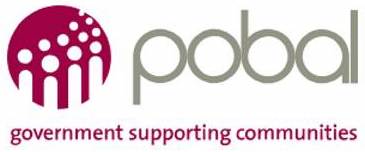
- Severe asthma defined by Asthma Society expert advisory group
- Asthma Society urges people with severe asthma to cocoon due to coronavirus
On Friday, March 27, An Taoiseach, Leo Varadkar announced to the nation, that people considered “extremely medically vulnerable”, including those with severe asthma and severe COPD, were required to practice “cocooning”. People in this extremely medically vunerable category are considered to be at a higher risk of suffering complications if they do contract coronavirus.
Cocooning is a new term and means that people are over 70 years of age or who are “extremely medically vulnerable”, should stay at home at all times and avoid face-to-face contact with other people. More information on cocooning is available on the Asthma Society’s website – www.asthma.ie.
Immediately following this announcement, people with asthma in Ireland began contacting the Asthma Society of Ireland seeking clarity on what was meant by “severe asthma” to see if they themselves must cocoon.
Sarah O’Connor, CEO of the Asthma Society, said: “We were overrun by requests to our offices and to our Adviceline service looking for an exact definition of severe asthma. There was confusion as to what exactly classed someone’s asthma as severe asthma and who should cocoon. It is not simply a description of how a patient’s symptoms feel to them, as some patients believe. This makes it challenging for patients to know if they should cocoon, and they need our support to make this important health decision.
We teamed up with our medical advisory group, made up of the top asthma experts in the country, to put together this definition for people with asthma and their concerned family members.
Asthma exists on a spectrum. Severe asthma is a more difficult to manage form of the condition. Severe asthma is recognised by doctors through categorising the type, strength and dose of medication prescribed patient requires to keep their asthma in control and whether they have needed hospital treatment within the past 12 months. It can take months or years to diagnose a patient with severe asthma, as doctors may try different treatments to manage it.
The full definition is available on our website at www.asthma.ie. The guidance we have prepared allows patients to work through a number of steps to establish if their medication strength and type indicates that they have severe asthma. If patients need any help in determining whether or not they should cocoon, we encourage you to contact our free call-back Adviceline service and speak to our specialist nurses who will be happy to help you.”
Marcus Butler, Medical Director of the Asthma Society of Ireland and Respiratory Specialist Consultant at St Vincent’s Hospital, said: “Severe asthma has only had an agreed definition internationally since 2014. It is understandable that patients can find this hard to understand. We implemented a comprehensive definition of severe asthma to assist patients in ascertaining if they should cocoon, which is now available on the Asthma Society’s website. Patients should reach out to the Asthma Society Adviceline on 1800 44 54 64 and contact their GP or hospital consultant should they need additional information.
The HSE is implementing appropriate measures to protect this group during the crisis and we recommend that guidance from the HSE and the Department of Health, including cocooning for severe asthma patients, is strictly adhered to.”
Experts consider severe asthma to be present in an adult or child in any if they meet specific criteria. People looking to find out if their asthma is considered severe asthma, should visit asthma.ie.
Sarah O’Connor also said: “We are calling on all people with severe asthma to cocoon at least until Sunday 12 April, as recommended by An Taoiseach, Leo Varadkar, and possibly beyond should this date be extended by the government. People with severe asthma are considered at higher risk if they do catch coronavirus and for this reason, cocooning is advised for their own safety. Family, carers, neighbours and our public services will help ensure you have the support you need.
If you are living with someone or caring for someone who is cocooning, please give them as much support as you can, while also avoiding all unnecessary face-to-face contact and maintaining physical distance.”
For people whose asthma does not fall within the definition published on the Asthma Society website for severe asthma, the HSE has still recommended that they stay home where possible, practice physical or social distancing, wash their hands often and take every precaution to ensure their asthma is well controlled. It is essential that patients follow this advice for their own safety. People with asthma should visit asthma.ie for asthma management tips.
Dr. Dermot Nolan, Clinical Lead for Asthma for the ICPG, said: “There is no data to suggest that people with asthma are more likely to get Covid-19, but they may struggle more with the virus if they do contract it, so they must be extra vigilant. There is every need to ensure that they adhere to all HSE and Department of Health guidelines and take sufficient care at this crucial stage.
The vast majority of people with respiratory conditions can continue to get out for fresh air and exercise once a day, and even to work if necessary. If you are an essential healthcare worker, we recommend that you discuss your workplace exposure risk and your asthma-related risk of severe illness from covid-19 with your occupational health department and/or your regular asthma doctor, as the context for each worker is different.
Anyone with asthma or COPD should monitor their conditions carefully and telephone their doctor to let them know about any additional symptoms, such as a fever or new cough, as early intervention is crucial for these groups in particular.”
Sarah O’Connor, concluded; “The Asthma Society has been working extremely hard to bring people with asthma and COPD up-to-date and accurate information during these challenging times. We have sourced additional hours and staff members for our Asthma and COPD Adviceline which is available for free on 1800 44 54 64 or via email at nurse@asthma.ie.
We will not, unfortunately, be able to continue this work without your support. Please text “asthma” to 50300 to donate €2 to the Asthma Society or go to asthma.ie to make a donation. We’d like to thank all who have donated so far.
Text costs €2. The Asthma Society of Ireland will receive a minimum of €1.80. Service Provider: LIKECHARITY. Helpline: 076 6805278.”



